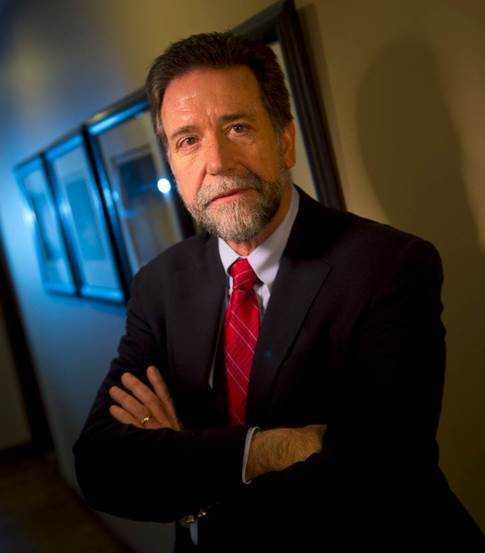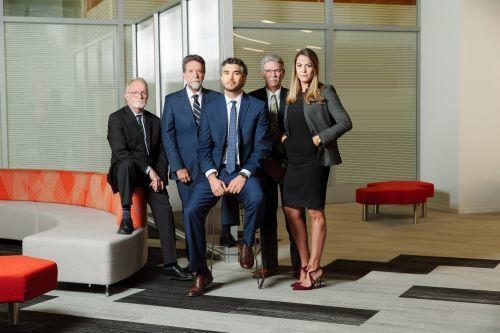Recent Blog Posts
What Does it Take to Obtain a Criminal Pardon in Wisconsin?
In June 2019, newly-elected Wisconsin Governor Tony Evers reversed the eight-year moratorium on criminal pardons imposed by the former Governor Walker, who refused to issue pardons during his two terms in office. Governor Evers issued Executive Order #30, which reversed Walker’s unprecedented shutdown of executive clemency. This Order reopens an avenue of potential relief for those who have lost some of their rights due to a criminal conviction.
Following his consideration of recommendations made by the Governor's Pardon Advisory Board after their October 14, 2019, hearing, Governor Evers issued pardons to eight individuals on November 8, 2019. “Pardons play a very important role in our criminal justice system and society by giving deserving folks a second chance,” Governor Evers said. “For so many of these individuals, their past record has held them back from achieving personal or career goals, and I look forward to seeing how they use this second chance to give back to their communities and our state.”
DNA Genealogy Data Used to Solve Crimes – Promises and Perils


By Raymond Dall’Osto and Jason Luczak
Today in America, we are regularly presented with headlines, promotions, and offers on digital and other media that tell us that by submitting a DNA sample (spit into small bottle and mail it in), this will provide a great way to connect generations, build a family tree, and find out more than just the place you’re from through Ancestry DNA and Ancestry Health. A different well-known firm, 23andme, offers equivalent services through its DNA Ancestry + Traits and Health + Ancestry.
On television, the widely-popular Find Your Roots series on PBS with Henry Louis Gates shows how DNA tests, coupled with traditional genealogy, can find unexpected results, roots and similar connections. Crime shows on television and in movies abound with the regular and glorified use of DNA technology to catch criminals.
Expungement Reform Stalls in State Senate, So What Can You Do to Correct Errors in Criminal Records?

After passing the Wisconsin Assembly earlier this year as A.B. 33, the Wisconsin Senate adjourned this year’s legislative session, without taking action to approve the parallel bipartisan expungement bill pending before it, S.B. 39. The proposed expungement reform bill, which has long been supported by the State Bar of Wisconsin and was favorably considered in previous years and legislative sessions, would change state law involving getting a criminal record expunged. If passed by the Senate and signed by Governor Evers, the expungement reform bill will significantly help alleviate the negative impact a criminal record can have on individuals seeking employment, housing, volunteer work, and in other areas where the stigma of a conviction can pose a roadblock, even in cases where the crime was nonviolent, a misdemeanor or lower-class felony, and/or committed many years ago.
How Can I Demonstrate Liability for a Car Accident in Winter Weather?
Wisconsin is known for its long, relentless winters. Wisconsinites experience more than 30 snowstorms each year, forcing us to adapt to work, play, and drive in harsh conditions. To those who are no strangers to the snow, driving in inclement weather is normal, but accidents still happen. If you have been in a collision, understanding the factors surrounding liability for a winter weather car accident claims can prepare you for how to proceed.
Determining Liability
Rain or shine, drivers are expected to follow safe driving laws. When winter weather hits, it is important to take extra precautions by taking it slow, allowing extra travel time, and remembering that sudden braking and steering can cause loss of vehicle control. Not all car accidents cause life-altering injuries, but property damage is likely to occur in even the most minor fender benders.
When unforeseen circumstances, such as snow or ice, play a part in car accidents, determining who was at fault for a collision may be difficult. In these cases, multiple factors may play a role, including:
Can Business Partnership Disputes Be Settled Through Litigation?
While most people who go into business with a partner take care to select ones who have similar goals, inevitably, there will be disagreements from time to time. Often, these issues can be solved through honest, open communication. However, sometimes a dispute can turn severe and ugly very quickly, which is when an experienced commercial litigation attorney can help. How a business is set up can also come into play.
Talking the Issues Out
First and foremost, successful business partnerships are based on the ability to communicate, at no time is this more important then when there is a disagreement between partners. Discussing these issues may demand a certain amount of diplomacy—and perhaps compromise—on both sides, but the outcome of maintaining the partnership and getting the business back on track can be worth it.
Third-Party Help
Sometimes disagreements—and partners—can become emotional, making a mutually beneficial resolution virtually impossible. In such instances, it may help to seek out a mediator. A mediator is an independent third party who is trained in dispute resolution who can help the two sides see eye-to-eye, or at least come together enough to keep the partnership intact and the business running.
How Can a Nursing Home Defend Against Accusations of Abuse or Neglect?

When a loved one enters a nursing home, it is usually with the idea that they will receive better care than their family or friends can provide at home. Sadly, this is not always the case. However, many nursing homes do provide quality care yet still face accusations that staff members did not provide the proper care. What can health care facilities, such as nursing homes, do to protect themselves from allegations of abuse?
Sad Statistics
No one can deny that nursing home abuse is a real concern. Consider:
- An estimated five million elders are subject to abuse annually.
- Elder abuse comes in many forms, including physical, emotional, sexual and financial.
- An estimated 5-10 percent of abuse reported by alleged victims is physical, 60 percent is verbal, and 14 percent falls under the category of neglect, which often includes the failure to provide proper food, housing, medicine, and/or hygiene.
When Is Probate Litigation Necessary to Resolve a Contested Estate?
The death of a family member can be a difficult, highly emotional time. An estate that is contested can make this an even more stressful situation—and one that requires a good probate litigation lawyer.
What Is Probate?
Probate is the process by which a person’s assets—or estate—are transferred to those who are legally entitled to them. The process is supervised by the court, and it makes sure all debts, taxes, and other expenses owed are paid and that the assets are distributed according to the decedent’s will or the state’s statues.
Formal Probate
There are several types of probate proceedings in Wisconsin. Estates that are contested invariably end up in what is known as formal probate. Formal probate occurs under the supervision of a circuit court judge when:
- There is no final will.
- All parties involved fail to agree to sign a waiver and consent.
How Can Healthcare Businesses Address Legal Issues Involving Overbilling?

In recent years, a number of news stories have surfaced about healthcare providers who have committed fraud by overbilling patients. While there are some unscrupulous entities that intentionally do just that, sometimes what looks like an attempt to commit fraud is nothing more than human error. For example, a bill could come from the billing department that assumed a specific service was performed because it appeared on the original paperwork and was never removed when the service was not rendered, or a patient could be charged for medication that was ordered but never received.
Unfortunately, the government does not determine healthcare fraud based on intent. In fact, under the Federal False Claims Act (FCA), a person who knowingly submits false claims to the federal government or causes false claims to be submitted will be civilly liable for fines and penalties. Despite the word “knowingly,” ignorance is not a defense. The FCA defines “knowingly” to not only include actual knowledge, but also instances where an individual acted in deliberate ignorance or reckless disregard for the truth or falsity of the information.
What Types of State Criminal and Related Consequences Can Result From Computer-Related Crimes?
 By Patrick Knight, Ray Dall’Osto & Jason Luczak
By Patrick Knight, Ray Dall’Osto & Jason Luczak
Computer and digital technology is constantly changing and ever-expanding. As a result, certain types of activities that might not seem problematic at the time could end up causing serious legal problems. State laws governing theft, and its civil cousins misappropriation and conversion, have expanded to include unauthorized possession, use and misuse of computers and digital information, the internet, use of identity, and capturing and sharing images.
Internet crimes are ever-increasing and the definitions applied and consequences change rapidly, with the sentences more and more retributive. Known collectively as computer crime laws, these statutes cover a wide scope of activities, and violations of these laws can result in a broad range of criminal penalties. In addition to criminal charges, these crimes and activities can also form the basis for restitution claims and large money damage lawsuits, which include punitive and treble damages.
How Do You Show Breach of Contract in a Civil Case in Wisconsin?
There are three ways a contract can be breached, warranting a civil lawsuit in Wisconsin. These are:
- Failing to perform a task specified in the contract.
- Making it impossible for the other party to perform a task stipulated in the contract.
- Communicating an intent to not perform a task in the contract.
While these three criteria may seem clear cut, proving that one or more of them has been met is not always so easy.
Establishing the Claim
To claim a breach of contract, the burden falls on the plaintiff (the person who commences the lawsuit), who must prove that:
- An enforceable contract exists,
- The defendant caused a material or fundamental breach, and
- The plaintiff suffered damages as a result of the breach.
Demonstrating the Existence of a Contract
To show that a breach of contract has occurred in Wisconsin, a valid contract must have been in place. The contract can be written or oral, as both can be legally enforced. What matters is the ability to prove the contract included the following three components:







